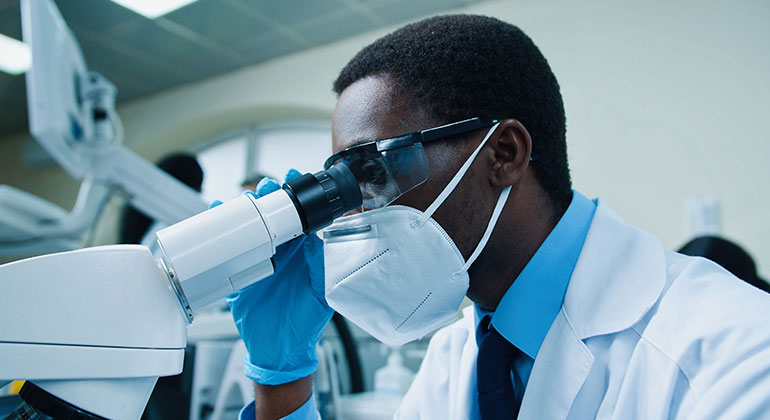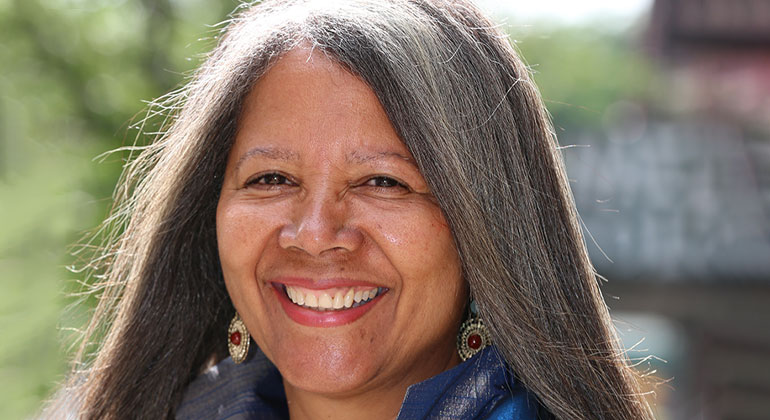Mount Sinai Initiates International Research Collaboration for the Advancement of Maternal-Child Health
Researchers from the Department of Environmental Medicine and Public Health at the Icahn School of Medicine at Mount Sinai are collaborating with scientists from Brescia, Italy, on a research project for the advancement of maternal-child health.
The collaboration, called the “First 1,000 Days Project,” will investigate associations between prenatal environmental exposures, genetic susceptibility, and physiological changes in pregnancy by analyzing obstetrical, neonatal, and child outcomes. The researchers will collect samples and data from a cohort of mothers and children in Brescia, Italy, from conception through the first two years of the child’s life. Additionally, the project will feature an educational campaign to encourage young couples and adolescents to make healthier choices for themselves and their future children. Brescia is located in the industrial region of northern Italy, a vibrant economic environment where historical pollution is still affecting the population’s health. Research conducted by Mount Sinai and the University of Brescia, and funded by the European Union and the U.S. National Institutes of Health, has already shown health impacts from environmental hazards among adolescents, workers and elderly residing in this region.
“Our innovative and multidisciplinary approach will allow us to better understand the relationship between infants’ health and the surrounding environment,” said Roberto Lucchini, MD, Professor of Occupational Medicine at the Icahn School of Medicine at Mount Sinai and at the University of Brescia. “With this understanding, we can develop more effective interventions to target exposures at the source. For example, we can consider the role of paternal and maternal workplace exposures, which is an understudied but very relevant aspect that may pose potential hazards for newborns.”
“This project represents a breakthrough effort to understand the environmental determinants of non-communicable diseases,” said Sergio Pecorelli, MD, PhD, President of Giovanni Lorenzini Medical Foundation, a not-for-profit scientific institution based in Milan, Italy, and Houston, aimed to promote research in the areas of prevention and translational medicine. “Moreover, we have the exciting opportunity to gather an international advisory board with multidisciplinary experts driving the design of the project. We are particularly happy to be partnering with the Icahn School of Medicine at Mount Sinai, given its long-standing collaboration with the University of Brescia.”
Participating researchers from Mount Sinai include Robert O. Wright, MD, MPH; Manish Arora, BDS, MPH, PhD; Philip J. Landrigan, MD, MSc; Roberto Lucchini, MD; Megan Horton, PhD, MPH; and Luca Lambertini, PhD, MSc, MPH.
Collaborators in Italy include Sergio Pecorelli, MD, PhD; Maurizio Memo, PhD; Maria Elisa Fazzi MD PhD; Alessandro Monaco, PhD (University of Brescia, Italy). Other collaborators are Dennis Bier, MD, PhD (Baylor College of Medicine); Paolo Sassone-Corsi, PhD (University of California at Irvine); Emmanuele Jannini, MD, PhD (University of Rome, Italy); Alberto G. Ugazio, MD, PhD (Bambin Gesù Hospital, Rome, Italy); Andrea Peracino, MD (Giovanni Lorenzini Medical Foundation); and Emanuela Folco, PhD (Giovanni Lorenzini Medical Foundation).
The project is funded by the Brescia Industrial Association and supported by the Giovanni Lorenzini Medical Foundation.
To learn more about the First 1,000 Days Project, please visit http://www.lorenzinifoundation.org/875-2/.
About the Department of Environmental Medicine and Public Health
The Department of Environmental Medicine and Public Health is committed to the prevention of diseases with environmental origins and encompasses the allied fields of occupational and environmental medicine, biostatistics, and behavioral science. Since its creation nearly 50 years ago, our department has been at the forefront of environmental health research, education, and clinical practice, leading to discoveries that have made a positive impact on millions of lives. We aim to prevent disease before it begins.
About The Fondazione Giovanni Lorenzini Medical Science Foundation
(www.lorenzinifoundation.org) consists of two not-for-profit scientific organizations, one based in Milan, Italy (established in 1969) and the other in Houston, USA (established in 1984): both are committed to the international scientific exchange and education in basic and medical research.
The mission of the Lorenzini Foundation is to transfer the most recent developments and results in experimental science to clinical and applied research, to be used for both the individual patient and for the community at large to improve both patient care and health systems.
For more than 45 years as a knowledge facilitator or translator within the health community, the Lorenzini Foundation has promoted and participated in key activities (more than 800) in interdisciplinary scientific and medical fields, and has been instrumental in providing evidence-based and integrated knowledge aimed at both the medical community and the public.
Since many years the Lorenzini Foundation has been coordinating the International Atherosclerosis Society, a federation of 65 national societies representing 54 countries (www.athero.org).
About the Mount Sinai Health System
Mount Sinai Health System is one of the largest academic medical systems in the New York metro area, with more than 43,000 employees working across eight hospitals, over 400 outpatient practices, nearly 300 labs, a school of nursing, and a leading school of medicine and graduate education. Mount Sinai advances health for all people, everywhere, by taking on the most complex health care challenges of our time — discovering and applying new scientific learning and knowledge; developing safer, more effective treatments; educating the next generation of medical leaders and innovators; and supporting local communities by delivering high-quality care to all who need it.
Through the integration of its hospitals, labs, and schools, Mount Sinai offers comprehensive health care solutions from birth through geriatrics, leveraging innovative approaches such as artificial intelligence and informatics while keeping patients’ medical and emotional needs at the center of all treatment. The Health System includes approximately 7,300 primary and specialty care physicians; 13 joint-venture outpatient surgery centers throughout the five boroughs of New York City, Westchester, Long Island, and Florida; and more than 30 affiliated community health centers. We are consistently ranked by U.S. News & World Report's Best Hospitals, receiving high "Honor Roll" status, and are highly ranked: No. 1 in Geriatrics and top 20 in Cardiology/Heart Surgery, Diabetes/Endocrinology, Gastroenterology/GI Surgery, Neurology/Neurosurgery, Orthopedics, Pulmonology/Lung Surgery, Rehabilitation, and Urology. New York Eye and Ear Infirmary of Mount Sinai is ranked No. 12 in Ophthalmology. U.S. News & World Report’s “Best Children’s Hospitals” ranks Mount Sinai Kravis Children's Hospital among the country’s best in several pediatric specialties.
For more information, visit https://www.mountsinai.org or find Mount Sinai on Facebook, Twitter and YouTube.



